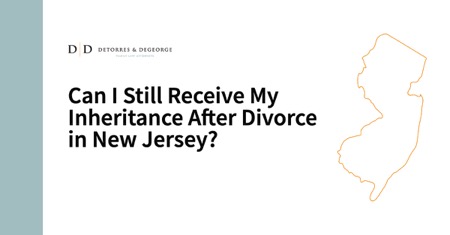 Like so many other aspects of the divorce process, there are lots of misconceptions surrounding the division of property in a divorce. Divorcing individuals often do not understand that their spouse may have rights in their assets, or what exactly those rights may be. Here we examine how to differentiate between separate property and marital property, as well as how an inheritance may be handled.
Like so many other aspects of the divorce process, there are lots of misconceptions surrounding the division of property in a divorce. Divorcing individuals often do not understand that their spouse may have rights in their assets, or what exactly those rights may be. Here we examine how to differentiate between separate property and marital property, as well as how an inheritance may be handled.
Separate Property vs. Marital Property There is a difference between property that belongs to only one party and property that belongs to both. Generally, anything acquired during the marriage is considered to be marital property, and property that is owned prior to the marriage is considered separate property. Using the example of a retirement account, a party who was contributing to their retirement prior to getting married retains the portion of the retirement account that accrued prior to the marriage as his or her separate property. Meanwhile, any portion of the retirement account or other bank accounts that were accrued during marriage are considered marital property and are subject to be shared in the case of a divorce.
Inheritance During Marriage An inheritance is considered separate property in the vast majority of situations. However, if you place that inheritance in a joint bank account, you have commingled it with marital money and it will no longer be considered separate property. Moreover, if you routinely utilize money from your inheritance to subsidize the marital lifestyle, your spouse may opt to make a claim that the funds should be considered marital property because that money allowed the marital lifestyle to be what it was. Generally, if you are expecting to receive an inheritance during your marriage, you should be sure to always keep it in a separate bank account segregated from marital funds in order to avoid any allegations that the money is marital.
Inheritance After Divorce Just as property that is acquired prior to the marriage is considered separate property, so is the property that is acquired following a divorce. Once all of the marital funds are divided in the process known as equitable distribution, there are no continuing rights to the property of the other party. Many Marital Settlement Agreements include specific language in this regard. Therefore, if an inheritance is received by one party following the divorce, they do not have to be fearful that their former spouse can bring them back to court to try to take a portion what was received.
If you have questions about your inheritance and the effect a divorce might have on that asset, contact the attorneys of DeTorres & DeGeorge to schedule a consultation.


 START LIVE CHAT
START LIVE CHAT










